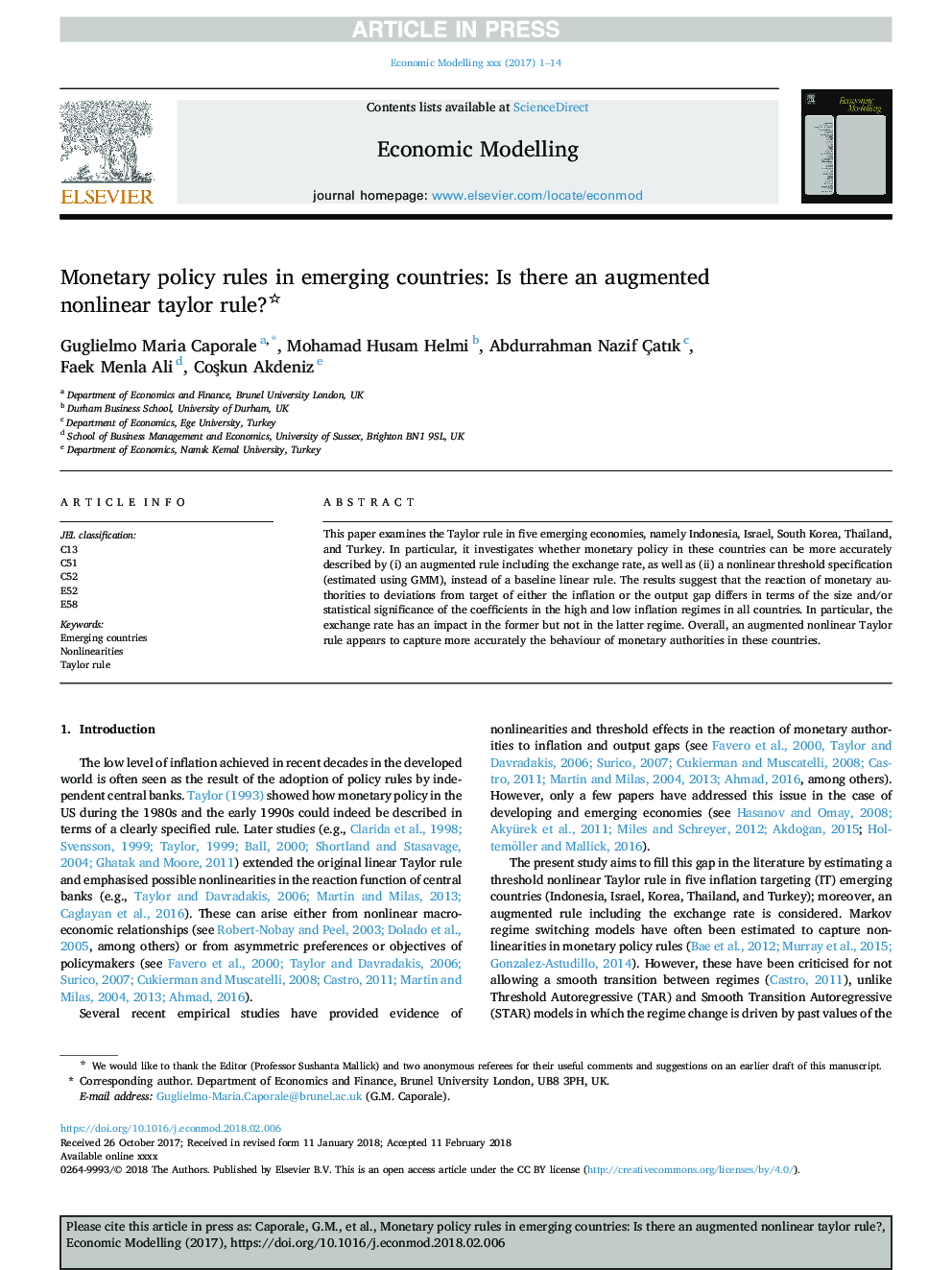| Article ID | Journal | Published Year | Pages | File Type |
|---|---|---|---|---|
| 7347041 | Economic Modelling | 2018 | 14 Pages |
Abstract
This paper examines the Taylor rule in five emerging economies, namely Indonesia, Israel, South Korea, Thailand, and Turkey. In particular, it investigates whether monetary policy in these countries can be more accurately described by (i) an augmented rule including the exchange rate, as well as (ii) a nonlinear threshold specification (estimated using GMM), instead of a baseline linear rule. The results suggest that the reaction of monetary authorities to deviations from target of either the inflation or the output gap differs in terms of the size and/or statistical significance of the coefficients in the high and low inflation regimes in all countries. In particular, the exchange rate has an impact in the former but not in the latter regime. Overall, an augmented nonlinear Taylor rule appears to capture more accurately the behaviour of monetary authorities in these countries.
Related Topics
Social Sciences and Humanities
Economics, Econometrics and Finance
Economics and Econometrics
Authors
Guglielmo Maria Caporale, Mohamad Husam Helmi, Abdurrahman Nazif Ãatık, Faek Menla Ali, CoÅkun Akdeniz,
